Children naturally wonder about the world their parents grew up in. They want to know what their parents were like as kids, what daily life looked like, what they cared about, and how their families shaped them. They’re curious about relatives they never met and eager to understand how their parents see the ways society has changed. Recently, I sat down with my father, who grew up in the Bronx, New York, in the 1930s, to explore these questions and many more. What follows is an interview with my father.


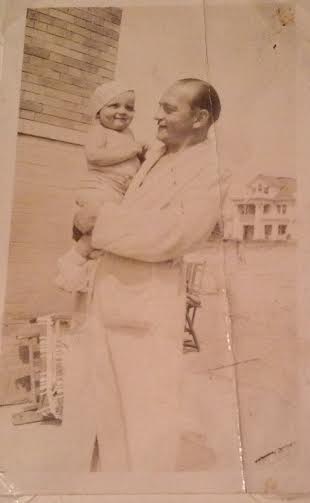

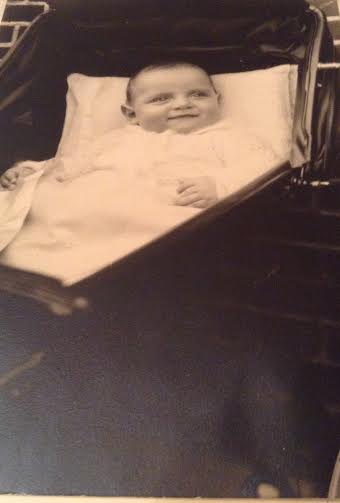
What is your earliest childhood memory?
On my birthday, there was a party planned and FDR died. I didn’t understand why everyone was crying on my birthday.


Do you remember any stories your parents told you about their childhood growing up in New York?
The earliest family story I recall was about an effort to control my father’s youngest brother. When they went out, they would put his coat on him and hang him on a hook in the closet. When they came back, he was still hanging in the closet. The brother confirmed the story.
I also remember that when my parents were growing up, they told me all the girls would get a penny to go out and buy something. One of the brothers got a nickel because he was a boy. The girls were only given pennies because they were girls. The culture was such that the girls were lucky to get anything.
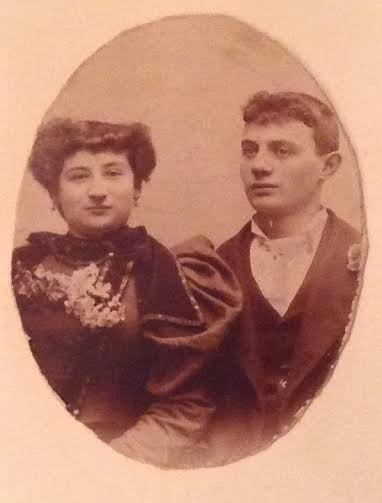

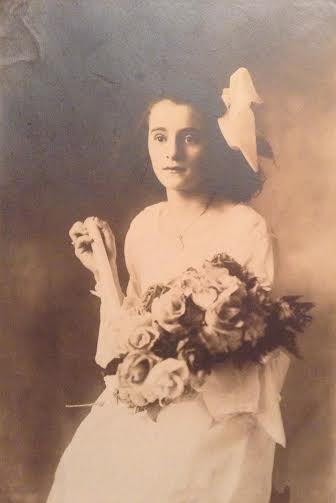

What did people do for fun when you were a child?
They either went to camp in the summer, they did their homework, they went to parks and played, or they had other children over. Kids played stickball on the street. Your status as a stickball player was based on how many sewer caps you could hit the ball over. Basketball was a big sport because all you needed was a hoop and some cement.
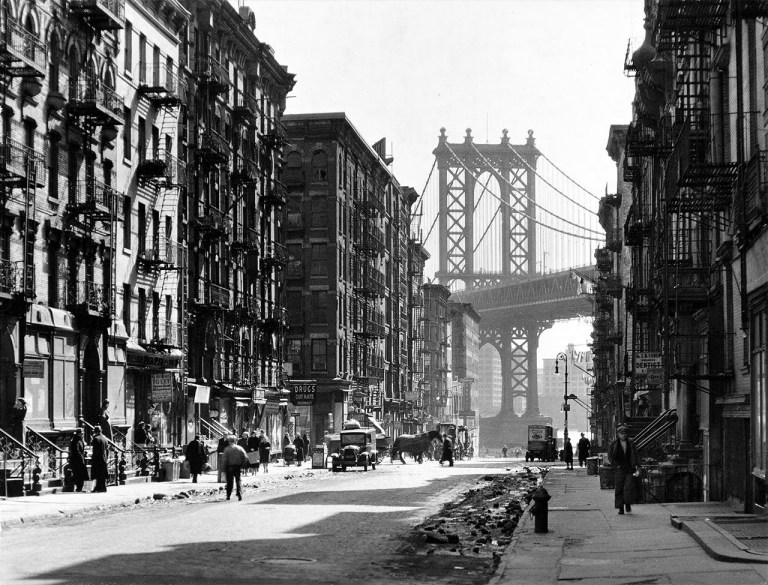
Did you go to camp?
I started going to sleepover camp at Camp Roosevelt in the Catskills when I was six years old and then I worked as a waiter at camp. It was located on Sackett Lake across from Kutsher’s Hotel and Country Club. We used to go over there to watch the college basketball games. There was this huge guy named “Chesty” at camp. He was a Native American. He would gulp raw eggs. Everyone knew him. I later worked as a waiter there. Color War was the biggest thing — the blue and grey teams. The final day we sang songs. Those were fun times.
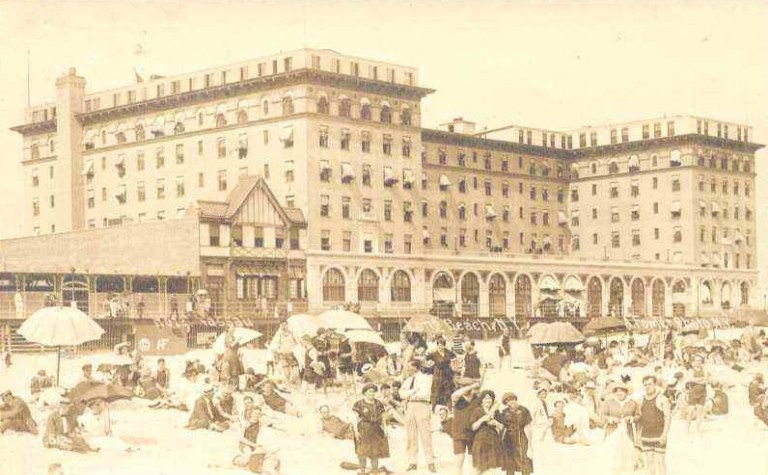

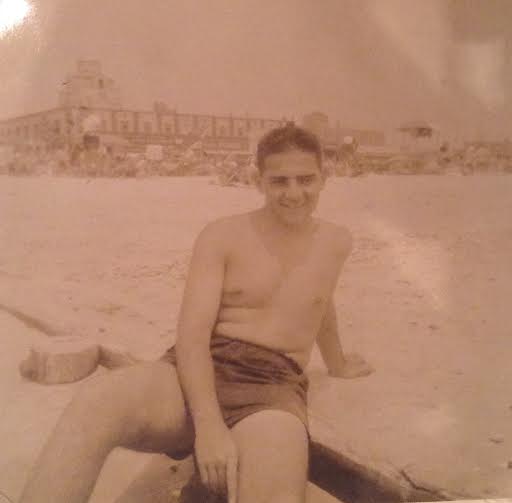
What was it like growing up in New York City in the 1930’s?
There were different sections where I grew up. I grew up in an all Jewish section. It was segregated. The first time I remember seeing a black person was when my cousins took me to a school yard when I was 10 years old. You went to school, there weren’t any lunch rooms — you ate in class, and after school, you either walked home with friends or your parents picked you up on foot. There was no such thing as parents picking you up in a car. Schools were relatively close to where you lived.

When did you first see television?
Milton Berle. My mother and father were one of the first to have a television in the building. Milton Berle was Tuesday nights. We would set up chairs for the neighbors to come in and watch Milton Berle. That was the big program. It was a variety show. Milton Berle was a comedian. He had on all sorts of entertainers. Martha Raye was a frequent visitor. Once a week, the crowd from the building would come in to watch Milton Berle.
What was your favorite part of the city?
My favorite part of the city was probably the school yard where I played basketball at P.S. 64 in the Bronx. Junior high school was JHS 117.

What was life like growing up in the Bronx?
I grew up in a ghetto section — Jews and very few non-Jews. I had nothing to compare it to.
What did you dislike most about childhood?
I can’t remember what I disliked most. I went to school, I came home, I always had food, it was a comfortable, carefree life that I probably never appreciated. I didn’t know the difference. I didn’t know there was any other way to live.
What did you like to read as a child?
Every Sunday, my father would sit down with me and read me the cartoons from the Sunday paper. Dick Tracy was one of my favorites.
Do you remember the first movie you saw?
I would go to the movies on a Saturday, mainly because they had these serials on — episode one, and then episode two the next week and so on. I remember the family went once to, must have been 1946, we went to see a war movie, all big stars, and at the end of the movie, my father said, “In five years, we will forget all about the war.”
I remember when my uncle got a job in Las Vegas, my mother and sister went to visit, and my father took me to the Palace Theater to see Danny Kaye. He was a funny guy, Danny Kaye. At the end of the show, he thanked everyone and said, “Just remember, my name is Daniel Kaminsky.” I still don’t know why he said that. You can still catch some of his movies on t.v.

Frank Sinatra, I don’t think he weighed more than 120 pounds, was playing at the Brooklyn Paramount and my sister and her girlfriends decided to go see him and scream.
What do you remember about school?
For some reason, the school system determined I was intelligent. That knowledge led them to put me in classes where I skipped a year in elementary school and skipped a year in middle school so I graduated college two years early. In retrospect, my academic abilities were far ahead of my social abilities because I was always the youngest in any class, including college. The thing I remember about the school system was there were no problems, no behavior problems. Students did their work, and you didn’t question the teachers. Probably 95% of the teachers were women.
Who was your favorite teacher?
In high school, there was a history teacher, his name was Shefter. I always thought he was very good. In college, there was this guy from Europe. He spoke on foreign relations and the class would be packed mostly with students that weren’t on his classroom attendance sheet because everyone wanted to come hear him speak. This was at CCNY.
What was it like going to college at CCNY?
I would get up very early in the morning, get on the train, pay the 10 cents, take it to 145th Street in the heart of Harlem, and I would probably walk a half mile up steep hills to get to the school. People would always say I would be stabbed. I never felt any fear in Harlem. After school, I would head home.
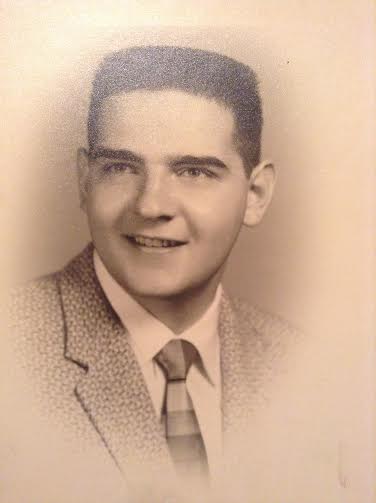
Your father was very young when he died.
Yes, I stayed home to look after my mother — the reason I stayed in the city for college. CCNY was, as best I can remember, $3 a year for tuition. I was also only 16 years old when I went to college. I was too young to understand the importance of making these decisions. My sister, who was older than me, told me I should go to college so I went to college.
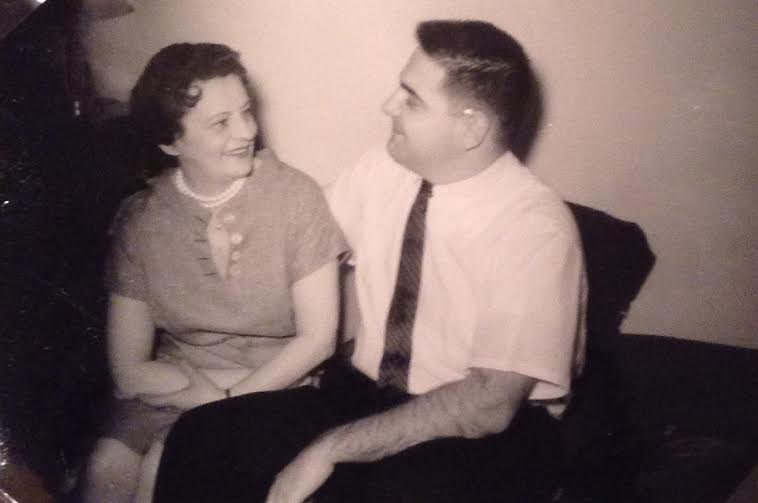
What was your favorite subject in school and why?
It was always history. Always history. It was a real learning experience. Stuff like math or economics, eh. At one time, I thought I would be a history professor but I didn’t see it as a job where I could be economically solvent.
What do you remember about your grandparents?
On my father’s side, I was named after my grandfather. His wife died many years before he did. He remarried a woman that they called Tanta. My mother’s father — it was alleged that she was not the only woman that he spent serious time with. Every three or four years, he would come back from wherever he was with one old-fashioned bag he would carry, he would knock on the door, and spend some time with my mother and father. He would leave and three years later, there would be a knock on the door and he would show up again.
My mother’s mother, her favorite paper was The Forward. She didn’t speak much English — it was in Hebrew. When I would visit her living with my Aunt Sophie, the only picture I remember of her was sleeping in the bed. She had eight children. She was tired. Our family had a lot of children. My father’s side, I had a lot of cousins. I had approximately 25 cousins. My mother was one of eight children. My father was one of nine children. There was no birth control back then.
How did transportation change life?
We never owned a car. All our transportation was either walking or taking the trains for five cents. For 10 cents, we could go anywhere in the city. We would walk to Yankee Stadium. My mother took me to a speech therapy clinic because I had a stutter. We had to take the train for that. We walked to do our grocery shopping. I remember one of my friend’s fathers got a new car and he drove us to a basketball game and I got car sick and threw up on his new car.
Do you remember when seatbelts were first introduced?
I remember that the automobile companies were not in favor of it because of the price increase. They later discovered it didn’t increase the price and they couldn’t sell a car without seatbelts.
How far did you live from Yankee Stadium?
We lived on 172nd Street. Yankee Stadium was 161st Street. It was about 11 blocks and one block over.

You met the New York Yankees. What was that experience like for you?
My father was friends with Al Schact. His title was “The Crown Prince of Baseball.” Al Schact had a restaurant in Manhattan. Al Schact took me and my father into the Yankee’s dugout which is where I got the autographs I gave you from Joe Dimaggio and the Yankees from the 1930’s and 1940’s.
Your Uncle Pete went to Commerce High School with Lou Gehrig. Do you remember any stories he told you?
No.
You once gave me your autograph books from grade school. I’ve always been amazed by the time your classmates spent writing in them. They seemed to have a lot of character.
They wrote poems. Some of them were very funny.
What do you remember about the Kennedy assassination?
Ohhh. At that time, I was working for Regal Paper Corporation in Manhattan. The Vice-President of Sales came running through the halls yelling, “Kennedy has been shot! Kennedy has been shot!” I went home, I was living in Manhattan at the time, the streets were empty. Everyone was transfixed by the t.v. All day Saturday and Sunday, everyone was watching t.v. When JFK Jr. saluted at the grave, I don’t think there was a dry eye in the country.

25 Nov 1963, Washington, DC, USA — John F. Kennedy Jr., who turns three today, salutes as the casket of his father, the late President John F. Kennedy, is carried from St. Matthew’s Cathedral in Washington, DC. — Image by © Bettmann/CORBIS
What about the assassination of Martin Luther King?
There was no doubt in my mind at that time they were going to kill him and they killed him. This guy who used to be a client of mine, white guy, would tell the story — he was a civil rights guy who knew King. He said they went to this southern town and King felt threatened and they slept on the floor outside of King’s room to make sure nobody would get in and kill him. I asked him how long he did that and he said 3-4 weeks. There was definitely a fear in the land that King would be shot.
For your 44th birthday, I gave you a book of coupons offering to do things like the laundry, etc. One of the coupons I made for you offered to walk the dog four times. Why didn’t you ever use the coupons?
Andrew, we didn’t walk the dog. We just let the dog out at night. This was another one of your masterful promises that you made and had no intention of keeping (laughing).

I’m entering this photo into evidence that I walked the dog.
Andrew, I don’t remember you walking the dog. Maybe you put the leash on the dog to pose for a photo so it looked like you were walking the dog (laughing).

You were very calm as a father. I never heard you complain about anything my entire childhood. I still find that amazing. How did you keep so calm?
Well, I had a philosophy that something that might seem very important today will be much less important in the days and weeks ahead. The other thing, when you kids would be battling over a piece of paper, I always had the rule that you could fight as long as you didn’t hurt each other. I don’t think you and your sister ever got into a physical argument. It was always verbal. I knew you would work it out and you did.
I never once heard you complain about work. You obviously had bad days. Why did you never complain about it to us?
I compartmentalized my life. There was the home life, there was the family life, and there was the work life. I always tried to keep them separate. To me, the family life was always more important than the work life. Andrew, you constantly amaze me, the things you remember.
I remember as a kid in New York City, we saw Mickey Mantle and you stopped to look at him. What were you thinking?
Well, you really have to go back to that day Andrew. If you remember that day, we went to Madison Square Garden. I asked you if you wanted to go to Mickey Mantle’s restaurant. My impression was one of great sadness. As he walked around the tables, he could hardly walk. His legs were so bad, I did not feel admiration. I felt sadness. Mickey Mantle was always a joy to watch. I didn’t know until many years later that he was an alcoholic. I don’t know how he managed to play so well given his disease. People didn’t talk about diseases back then like they do now.
You were in a car accident in the 1970’s when someone rear ended you while your car was stopped. How did that accident affect you?
At that time, I was working for Dun and Bradstreet. There was snow on the ground. I later found out that the driver was drunk. I was lucky. The car was in very bad shape. I was grateful to survive it. Luposello’s Garage fixed the car and they sponsored your little league baseball team.
What are some things that we take for granted now that people didn’t have when you grew up?
The major thing is cell phones and technology in general. When I was growing up, there was more of an emphasis on personal relationships whereas people tend to spend more time behind computers now.
You had to be wealthy to have an automobile in the Bronx. The saying was, “There is a parking spot, go find a car.” World War II, after the veterans came back, all the developments, Levittown, developed high rises so people moved out of the city and the next immigrant phase moved from Manhattan to the Bronx and Brooklyn. They moved out of Manhattan and then it became a place for mostly wealthy people.
I remember growing up, you went to the doctor and paid the bill. The first insurance plan I can recall was Health Insurance Plan (HIP). When your doctor found out you were thinking about HIP, the level of care you received was less than if you hadn’t mentioned it. HIP cut the doctors’ revenue. They got paid less. Many doctors refused to join it. This started my journey to believing that many doctors are in business to make money.
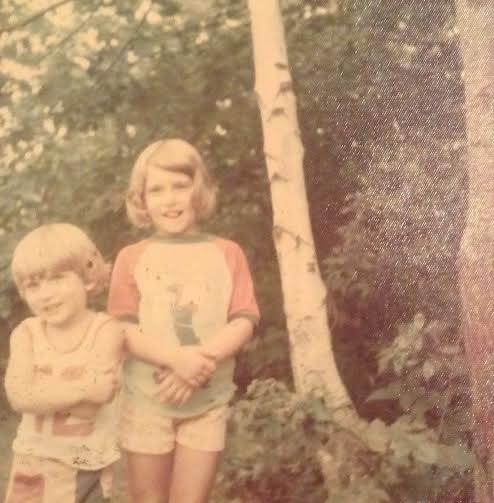
What was the hardest part about being a father?
The hardest part of being a father was really I probably didn’t spend enough time with you kids as I would want to. Even though I thought my family life took priority, I recognized in order to keep feeding the kids, I had to work. The thing I remember is I would sit down on the couch with you and your sister on each side of me with a book at night. Your sister would say, “Read it, Dad.” I would say, “I can’t read it, you’re not close enough.” You would come closer and we would be close together and I would read you the book. It was great to be your father. Still is great.
(Note from Andrew: This answer surprised me. My father was always present in my life — reading to me before bed, playing with me in the yard, helping me with homework, attending parents’ night at school, coming to watch me play little league after work, taking me to baseball card shows, driving me to college, and giving me advice. I suppose he wanted to do even more.)

What is the single most memorable moment of your life?
When you two kids were born.

I hope you found this interview with my father interesting. I also hope it inspires you to learn more about your family and their life lessons if you still have the opportunity.
My father inspired me to share his guidance and support with children who grew up without a Dad. He was the reason I volunteered at the Children’s Home Society with orphaned children, became a Big Brother to several children who lost their father, mentor at-risk children at the Boys and Girls Club, and coach special needs children for the Special Olympics.
At my first full-time job after college, I wanted to apply for an opening in management but I decided not to. I told my father I couldn’t get the job. He looked at me with the same belief he always had in me and said, “Why not?” Those two words, which I couldn’t answer, motivated me to apply and I got the job. His vote of confidence on that day and throughout my life has always reminded me of the importance of a good parent or mentor in a child’s life.
I don’t know how many sewer covers you cleared playing stickball, but you always hit a home run as a father. Thanks for the interview Dad. I still remember when you used to sit me on your lap and read to me at night. Always will.















Thank you Andrew, the pictures are wonderful. To be able to put a face to the people brings them alive. Having a supportive father is pivotal to the development of a healthy, compassionate and successful child. Or not.You have done well and care. I’ll look forward to following you.
I have some knowledge of my family and it’s history. All of the men on my father’s side were dentists in Maine, going back generations. My grandfather graduated from Tuft’s and refused to practice. H became a janitor for his wife’s family’s frozen food business in Boston and lived an unhappy life from what I can remember.
Writing from memories brings clarity to who one is and why. It can clarify many questions and allow one to move forward and outward.
Regards, Wendy
Hi Wendy,
Thank you for your kind remarks and for sharing your family’s story.
Yes, it is very interesting to learn about the history of our family — to see what life was like for them, what may have shaped them, how times have changed, and what we can learn.
What an awesome article so cool reading and seeing the photos and stories! Loved it!
Thank you very much Asie. I didn’t know so much of this information so I think I’ll always be glad that I did this interview.
Hope all is well with you.
This is a beautiful tribute to your family, especially your father, Andrew. I love the photos and can almost hear your dad answering these questions. Great suggestion for the holiday gatherings.
Jackie
Thank you Jackie.
I enjoyed reading the interview very much and I could hear your father’s voice in my head as he answered the questions. It sounds like he had a very secure loving childhood. The world seemed so much simpler and easier to navigate back then.
Thank you Scott. Yes, it was definitely a more simple time.
Andrew, I’ve read many things from you over the years and have enjoyed them all – whether they be animal/vegan -related, political, satirical, etc. This, I must say, may be the most touching and inspirational of all. You never cease to amaze me with, not only your writing, but your ability to delve so deeply into a subject, and to do so so feelingly – allowing us to experience the essence of the subject – here, your wonderful father. There are many similarities between our fathers, and upbringings, and perhaps that’s why it touched me even more. How I wish I had taken the opportunity to interview my dad before he passed nearly two years ago. Sure, I asked him questions throughout the years, but the manner in which you asked, and uncovered so many aspects of your dad’s life – as a child, young adult, husband, and then, as a father – was really touching. And will surely inspire others to do the same with their parents, grandparents, and/or others close to them. A heartfelt thanks for the interview. I really enjoyed learning more about your dad, and his life.
This is a beautiful message Andrew. You are a really good guy. Thank you for taking the time to write such a kind note. It means a lot to me.
I got lucky. I beat the deadline by two months. I had been asking for years. My Dad was so humble that he didn’t see the purpose in it. I’m glad I asked that final time.
It would bring me great satisfaction if it in some way inspires others to do the same — to ask, to not wait, to think about the inevitable.
I’m sorry you lost your father. If you ever need to talk, let me know. I’ll listen and provide comfort.
Hope to see you again soon in our travels.
Your friend,
Andrew